5 pillow colors to avoid – why these popular colors are harming your sleep schedule
Reds and purples may be regal – but they're better left beyond the bedroom. Here's what experts avoid for a peaceful slumber

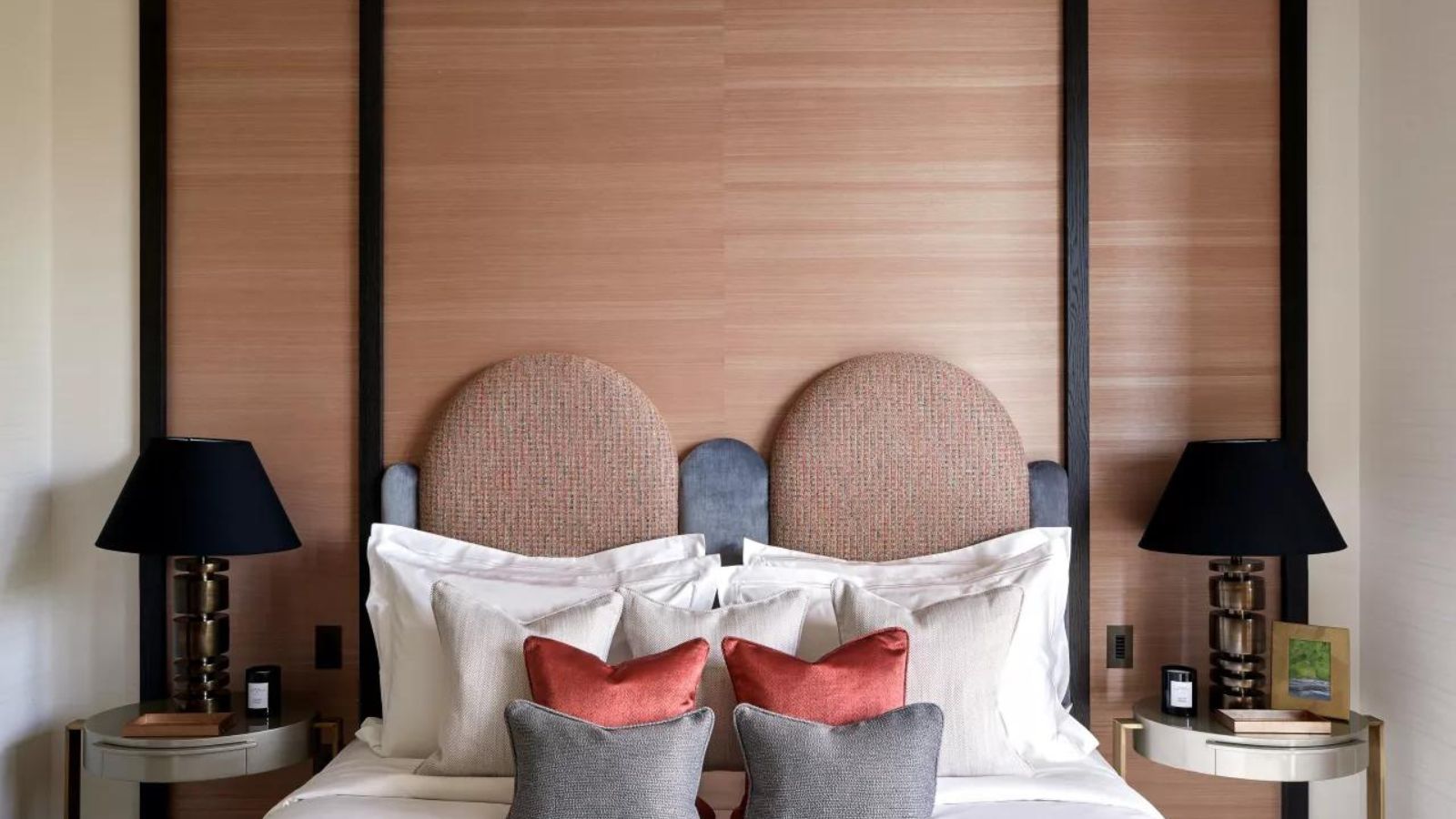
Design expertise in your inbox – from inspiring decorating ideas and beautiful celebrity homes to practical gardening advice and shopping round-ups.
You are now subscribed
Your newsletter sign-up was successful
Want to add more newsletters?

Twice a week
Homes&Gardens
The ultimate interior design resource from the world's leading experts - discover inspiring decorating ideas, color scheming know-how, garden inspiration and shopping expertise.

Once a week
In The Loop from Next In Design
Members of the Next in Design Circle will receive In the Loop, our weekly email filled with trade news, names to know and spotlight moments. Together we’re building a brighter design future.

Twice a week
Cucina
Whether you’re passionate about hosting exquisite dinners, experimenting with culinary trends, or perfecting your kitchen's design with timeless elegance and innovative functionality, this newsletter is here to inspire
The impact of color on our psyche is increasingly prominent in the design industry for good reason. Your choice in hue, whether that's through paint or textiles, influences your mood and wellbeing – meaning it is important to choose correctly in every room of your home. And there is perhaps no more powerful space than your bedroom.
When wondering how to sleep better, you may inevitably start with large, tangible factors – such as investing in sound-proof windows or finding the best mattress for your needs. However, sleep experts have revealed that color influences how you feel in your bedroom – and so – should not be forgotten.
And while you may prioritize bedroom paint ideas, knowing the pillow and bed sheet colors to avoid is equally as impactful.
Pillow colors to avoid – 5 tones that may be impacting your sleep
Alex Dimitriu, who has a double board-certified in Psychiatry and Sleep Medicine and founded Menlo Park Psychiatry & Sleep Medicine, explains that some online reports suggest that red and purple may be invigorating colors that are best avoided. Meanwhile, he notes gray may feel depressing.
'[However], I believe personal preference is the most important factor in choosing bedroom colors,' he says. Your bed and bedroom should be your happy place.' If the following colors bring joy to your bedroom, you do not need to change them. But it's worth noting their impacts, especially if you're struggling to fall into a restful sleep.
1. Purple

Purple room ideas may seem mysterious and almost regal, but bedding expert Karen Yu Zinus warns that it's a mentally stimulating color.
'It's closely associated with creativity which is more likely to wake you up rather than help you get a peaceful night's sleep,' Karen says. Therefore, if you are set on adding purple pillows, you should look for purples that have blue undertones. 'Blue is great for aiding sleep, so colors like lavender or periwinkle are worth exploring,' she says.
Design expertise in your inbox – from inspiring decorating ideas and beautiful celebrity homes to practical gardening advice and shopping round-ups.
2. Red
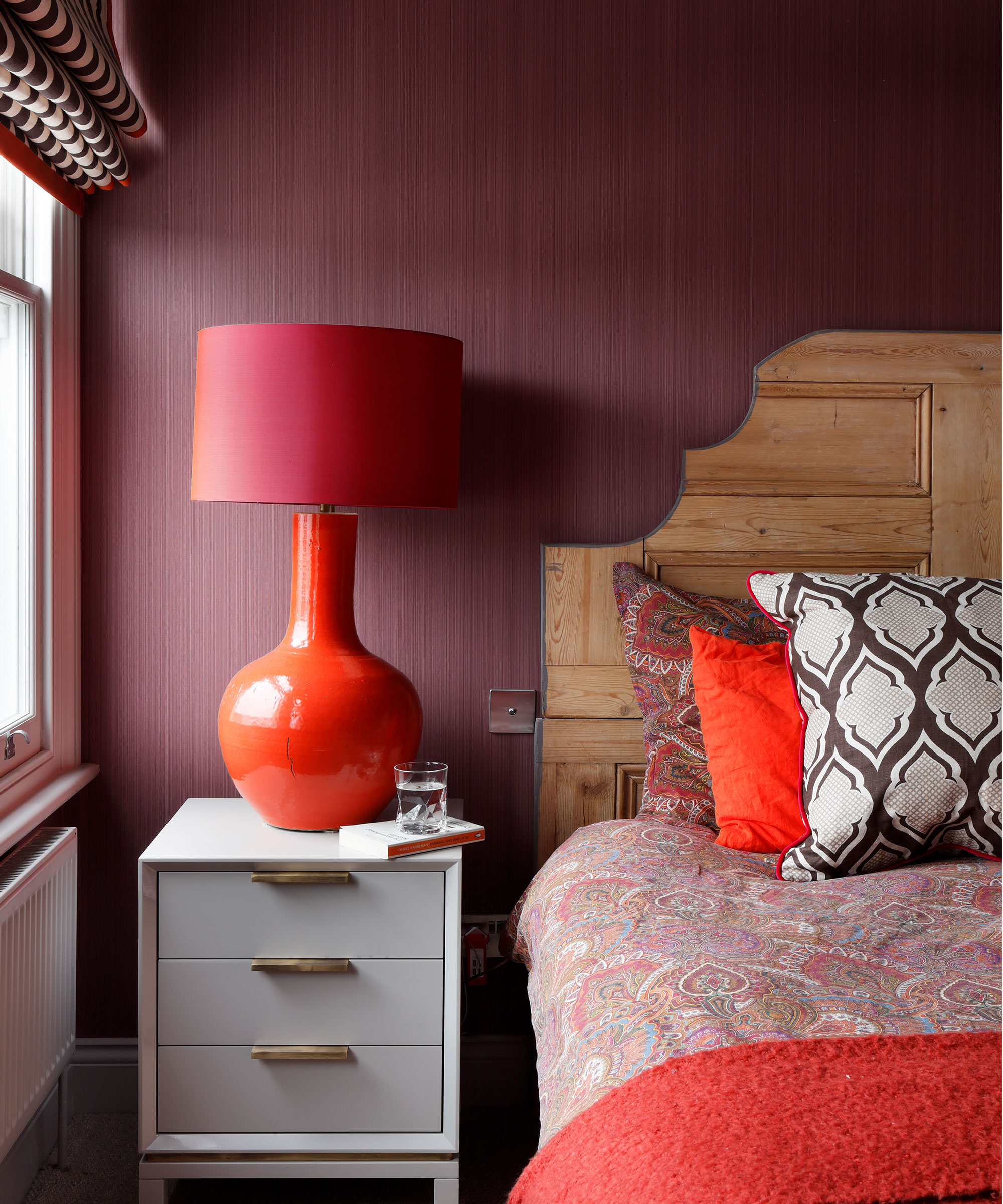
'Often associated with excitement, passion, and sensuality, red might seem like the perfect color scheme for your pillows. However, it is an incredibly active hue, and while it might be a desirable choice for some bedroom activities, sleep isn't one of them,' Karen warns. If you have red pillows, you'll likely feel more restless and stressed – which, in turn, can make your sleep elusive.
3. Bright pink
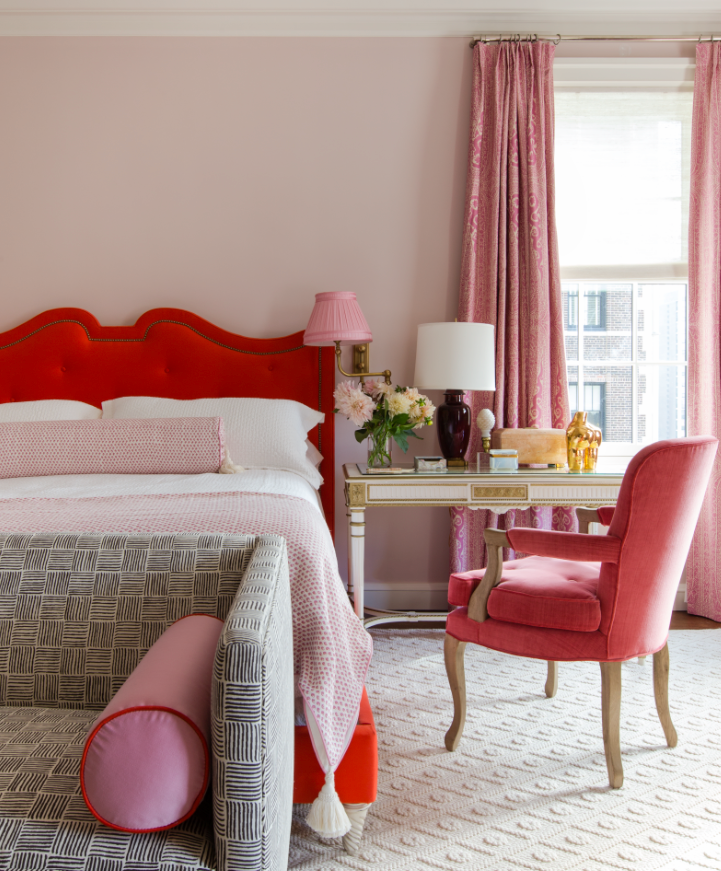
Bright pink tones combine the same sleep-negative characteristics as red and purple – including stimulation and restlessness. The expert particularly warns against tones like neon and Fuschia, which can feel too over-inspired when trying to settle down at night.
'While the rise of Barbiecore [the ultra-feminine pink design movement that originated on social media] is exciting for some lifestyle and decor options, it's best avoided when it comes to choosing your pillows,' Karen says.
It's worth noting that not all pinks are detrimental to sleep. You can look towards pastoral pinks and neutrals with pink undertones to encourage you to switch off in the evening.
4. Brown
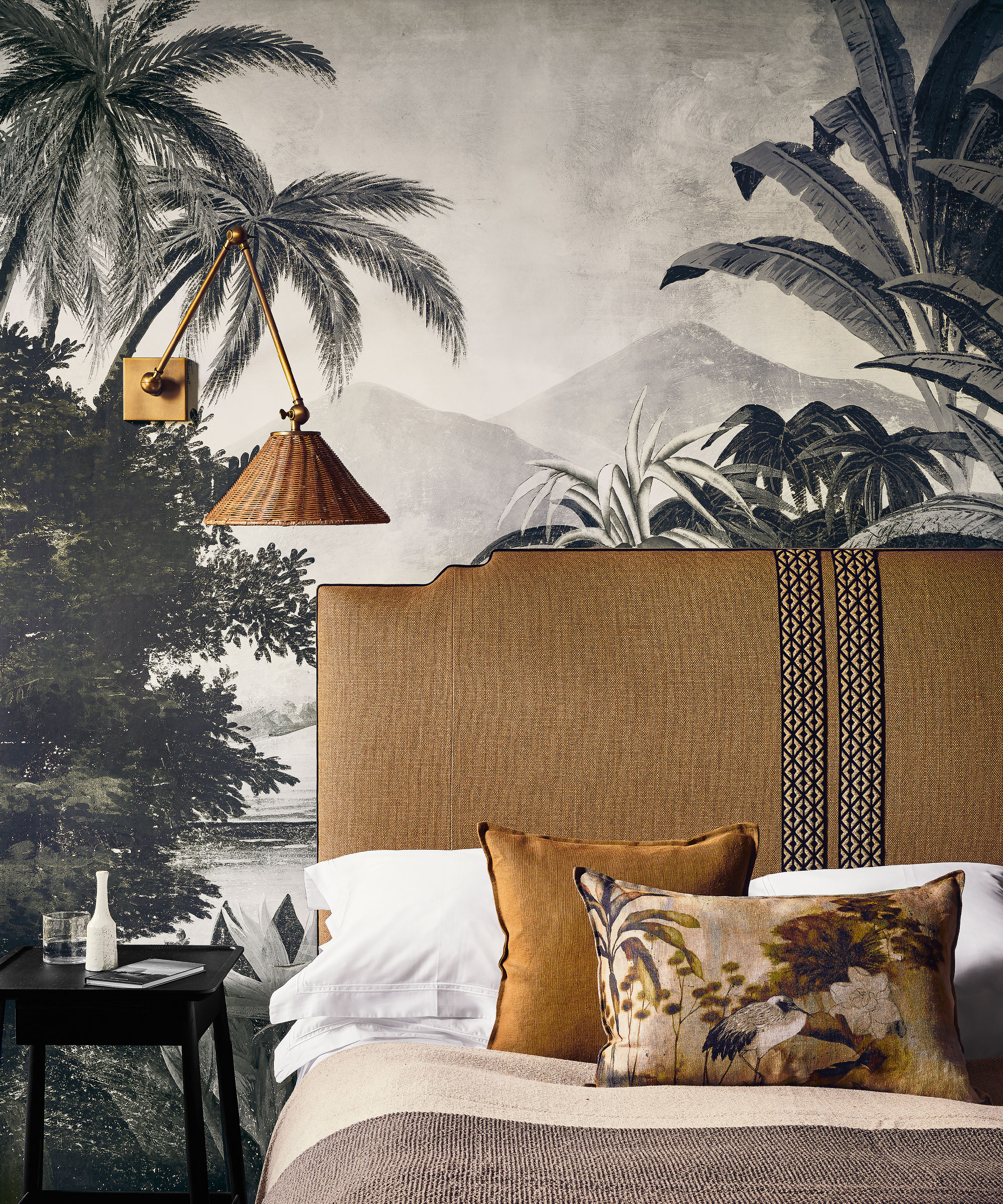
Brown may seem like a comforting, rich bedroom idea, especially at present, when the hue sits amid the most talked-about colors. But in all its style, it's a trend that's better left away from your pillows.
'Brown tones in low or weak light can often feel drab and gloomy, which can make your bed feel uninviting at night and uninspiring in the morning,' Karen explains. 'While tones of tan and beige can work when paired with other decor elements when it comes to dark or solid browns, it's best to steer clear.'
5. Gray
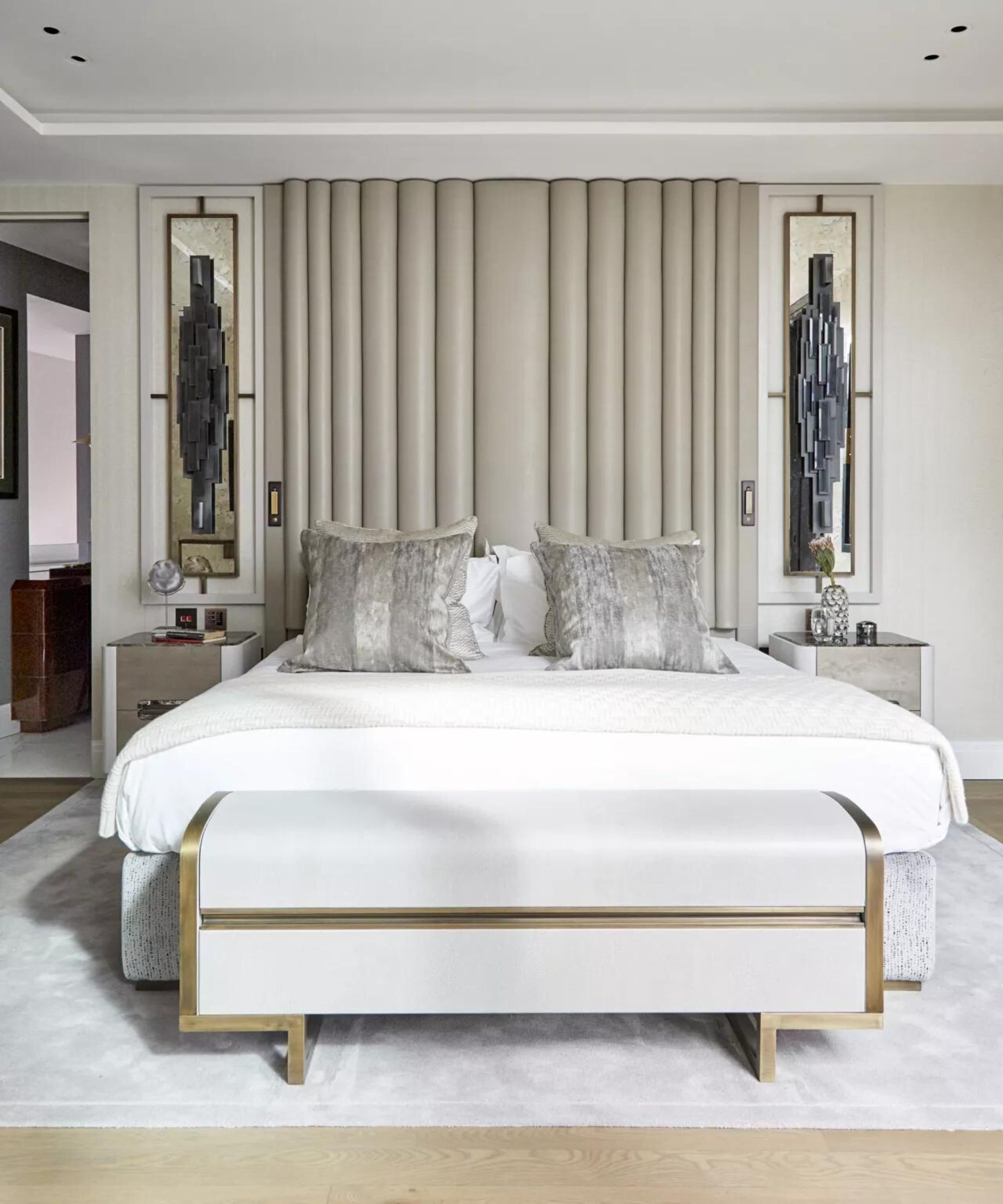
Decorating with grey will always have its place in many rooms of the home, including the bedroom, where it works effortlessly on the walls. Though, its impact on pillows is less desired.
'When it comes to getting ready for bed, grey pillows can often feel flat and uninspiring rather than comforting,' Karen says. This is especially true if they are on the darker side.
'Silver is a better alternative – the way it interacts with soft light can make your bedding feel more peaceful, which can help as you wind down with a good book or meditation app.'
FAQs
What is the best pillow color?
The best pillow color really depends on the room in which you are displaying it: in a living room, the best color might hide stains caused by spilt drinks; in a bedroom it might be blue, which is a great color for promoting a restful sleep.
Pillow colors to avoid aside, bear in mind that pale, plain pillows are more likely to show up stains and marks than those with patterns or those in mid-tones. Darker colors, too, will show up stains.

Megan is the Head of Celebrity Style News at Homes & Gardens, where she leads the celebrity/ news team. She has a history in interior design, travel, and news journalism, having lived and worked in New York, Paris, and, currently, London. Megan has bylines in Livingetc, The Telegraph, and IRK Magazine, and has interviewed the likes of Drew Barrymore, Ayesha Curry, Michelle Keegan, and Tan France, among others. She lives in a London apartment with her antique typewriter and an eclectic espresso cup collection, and dreams of a Kelly Wearstler-designed home.